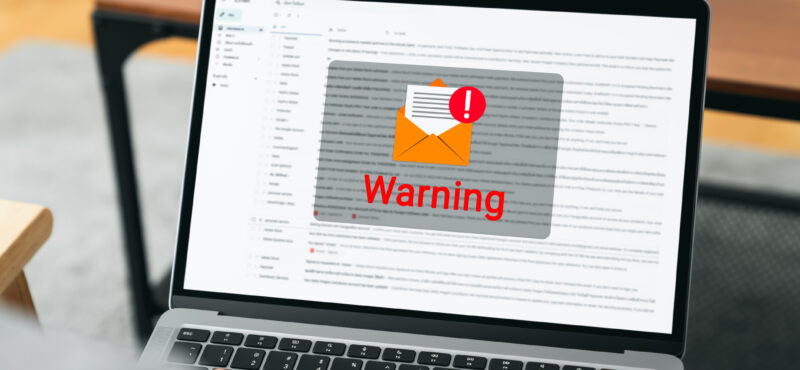Cybersecurity Awareness Month may be wrapping up, but protecting your personal information from hackers is important year-round.
A few smart habits — like using strong passwords, turning on multi-factor authentication, and thinking twice before clicking suspicious links — can keep you safe from cybersecurity attacks.
Why it matters: Cyber threats evolve quickly, and credential theft — when criminals steal usernames and passwords — surged 160% in 2025. Stolen logins can give hackers access to your personal information, finances, and even everyday accounts like email or streaming services.
That’s why we’re sharing four simple, practical ways to strengthen your cybersecurity habits and help keep your information protected year-round.
1. Strengthen Your Passwords
Your passwords are the front door to your online life — make sure they’re not easy to crack. Hackers often use automated tools that can guess weak or reused passwords in seconds.
To build stronger passwords:
- Use at least 15 characters
- Mix letters, numbers, and symbols (like $, %, or !)
- Create a short, memorable phrase that’s hard to guess (like TravelPlan$4NextYear!)
- Avoid including personal details like birthdays or pet names
- Never reuse passwords — if one account is hacked, others can be too
Add another layer: Turn on multi-factor authentication (MFA) for important accounts. MFA adds a verification step — like a text code or app approval — before you log in, making it much harder for hackers to break in, even if they have your password.
Make it easier: Remembering dozens of unique passwords can feel overwhelming, but a password manager can help. These tools generate and securely store strong passwords, sync them across your devices, and alert you if any are exposed in a breach.
2. Don’t Skip the Updates
Those “update available” pop-ups on your devices are easy to ignore — but skipping them can leave you open to attacks. Software updates often fix known security flaws that hackers can exploit to access devices and data.
Stay one step ahead:
- Turn on automatic updates for your phone, computer, and apps
- Delete programs and apps you no longer use — they can become security risks
- Restart your devices occasionally so updates install properly
Think of updates as digital armor: each one adds another layer of protection.
3. Pause Before You Click
Phishing emails and text scams look legitimate but are designed to trick you into sharing personal information or clicking on malicious links. Scammers often mimic the logos, tone, and language of trusted companies — or even coworkers — to seem convincing.
Red flags to watch for:
- Urgent or threatening messages asking you to act fast
- Requests for personal or financial information
- Misspellings or unusual URLs (like “netfliix.com”)
- Attachments or links you weren’t expecting
Bottom line: If a message seems suspicious, it probably is. Instead of clicking the link, take a moment to pause and verify the sender. One quick check can help you avoid scams and keep your information safe.
4. Lock Down Your Devices
Protecting your accounts also means protecting the devices that access them. Leaving your phone or laptop unlocked is like leaving your front door wide open.
Easy ways to secure devices:
- Set devices to auto-lock after a short period of inactivity
- Use a strong passcode or biometric lock (fingerprint or facial recognition)
- Avoid logging into sensitive accounts on public Wi-Fi, unless you’re using a VPN
Stay Secure, All Year Long
Cybersecurity doesn’t have to be complicated. By taking simple steps now, you can help hackers out and protect your information year-round.
Cyberattacks aren’t the only threat to our connections. See how physical attacks on internet and phone lines are putting networks at risk.
